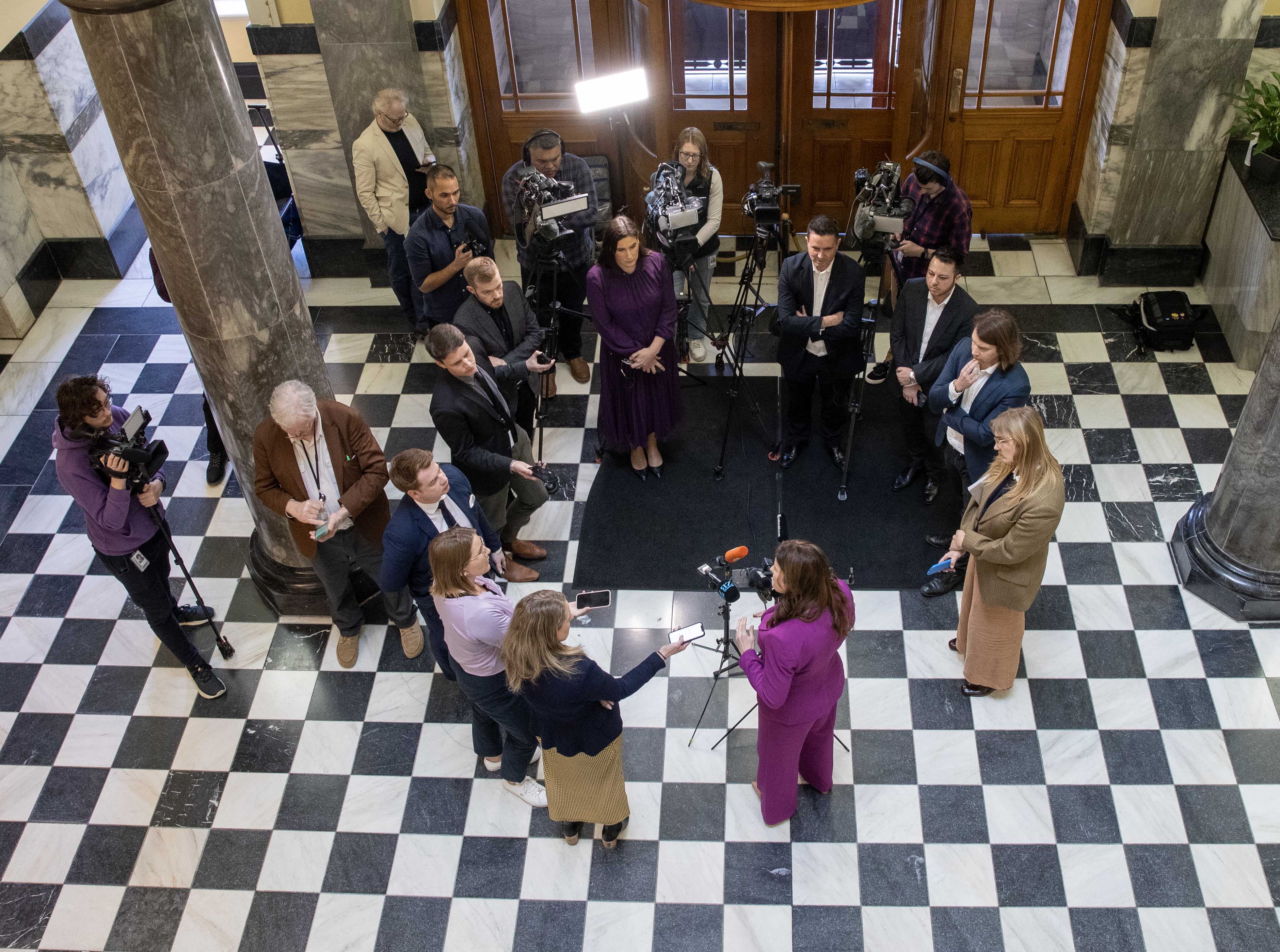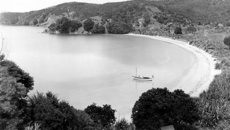
Culture wars are not meant to be won, they are meant to distract. Distract from what? Well, in the immortal words of Johnny Strabler (Marlon Brando) in The Wild One: “What have you got?”
Some culture wars, like the ones begun in the 1960s and 70s, are started to distract people from how well they are doing. Others, like those fought in the 1980s and 90s, were ignited to distract voters from how hard life was becoming, and how little was being done to make it easier.
If you’re berating your neighbour for allowing Māori and Pacific Islanders to be invited to his daughter’s birthday party, then your attention has already been diverted from the increase in your wages and the extra day of sick leave your union recently negotiated. If you’re railing against anti-Apartheid protesters in the streets, and cheering-on Rob Muldoon’s riot squads, then his appalling handling of the economy is unlikely to be front-of-mind.
Likewise with the campaign your party has launched against “hate speech”. Convince people that it is their duty to protect vulnerable communities from the sort of horrors that descended upon Christchurch’s Muslims, and they will spend less time worrying about Labour’s economic failures, and wondering why it is so hopeless at slowing down the neoliberal juggernaut – even a little.
Crucial to cultural warfare are the powerful emotions it arouses in those who, willingly or unwillingly, are required to do the fighting. Fear and anger, envy and resentment, disgust and disapproval, disaffection and disorientation, the overwhelming feeling of having lost control of one’s life: each and all of these emotions can be used to kindle a culture war.
Certainly, it helps if a government, or a social movement, is engaged in activity that violates broadly accepted views about what is, and is not, culturally, socially, politically and economically acceptable. In those circumstances, igniting conflict which distracts the voters from the fact that a party has no reasonable answers to the nation’s problems is, sadly, extremely easy.
But, this is precisely the situation that presented itself to the National, Act and NZ First parties as the Labour Party began its second term of office. The consequences of the policy decisions Jacinda Ardern’s government had taken in its first term were becoming increasingly clear to more and more New Zealanders – and not everyone was liking what they were seeing.

That Labour entered its second term with an absolute majority in the House of Representatives – a result unprecedented in the MMP era – meant that the notorious “handbrake” of Labour’s first-term coalition partner, the socially conservative NZ First, was no longer in operation. Causes dear to the hearts of Labour politicians could now be advanced without fear of collapsing their government. And advanced they were.
Labour’s most radical policies were those pertaining to what the newly minted Te Arawhiti – the Office of Crown-Māori Relations – had bundled together under the headings of “Decolonisation” and “Indigenisation”.
Exactly what those daunting terms meant was helpfully spelled out in the report Labour had commissioned (unbeknown, allegedly, to NZ First) before the 2020 election, in which a carefully chosen group of “experts” fleshed out how New Zealand might honour its commitments to the United Nations Declaration on the Rights of Indigenous Peoples. Inevitably, the contents of this document, The He Puapua Report, found their way into the public domain. The revolutionary “solutions” it proposed were bound to raise the ire of Pākehā conservatives – and they did.
Almost overnight, Māori-Pākehā relations, never a controversy-free element of government policy in New Zealand, found themselves under intense public scrutiny, and targeted for bitter recrimmination. The term “co-governance”, scandalously ill-defined by Labour, and, therefore, capable of almost limitless misrepresentation, entered New Zealand’s political vocabulary. So, too, did the programme known as “Three Waters”, the co-governance arrangements of which seemed to have been lifted, holus-bolus, from the He Puapua playbook.
The conservative political parties could not, realistically, forebear from taking political advantage of the fear and consternation that Labour’s radical race-relations policies were provoking. Each of them knew that if they refused to do so, then their electoral rivals would not hesitate to welcome aboard the voters they were bound to shed. Though it was not a culture war that National, Act or NZ First had made any special effort to ignite, it was not one they could afford to stay out of.
There were other causes dear to the hearts of Labour’s caucus: transgender rights, putting an end to “hate speech” and “disinformation” (even at the price of curbing Freedom of Expression) but it was the huge changes set in motion by the twin policies of Decolonisation and Indigenisation that caused many Pākehā New Zealanders to say that Labour’s policies had made them feel like “strangers in their own land”.
If this was a “culture war”, then it was a war most people believed Labour had started all by itself, and if ordinary Kiwis were not allowed to stay out of it, then they would bloody well have to win it!
It is doubtful if National ever truly understood just what sort of culture war it was engaged in. Yes, it provided the Opposition with a whole host of distractions from the dire economic circumstances that loomed ahead of all the political parties vying for power, but the expectations to which it had given rise were not the sort that could be safely put to one side when the election was over. Labour had spooked the country, and the parties of the Right were being installed in the Beehive to unspook it.
Christopher Luxon, in particular, seems determined to put the distractions of Labour’s culture war to one side. Clearly, the tough responses and big promises made in regard to the issues alarming New Zealanders, were, as Labour’s Steve Maharey famously informed Parliament: “The sort of thing you say in Opposition, and then forget about in Government.” Luxon’s focus is on economic policy, tough economic policy, economic policy that hurts, and he is in no mood for distractions.
As far as a very large number of voters are concerned, however, the Government’s economic policies – all so wearisomely National Party in their prioritisation of the needs of the wealthy and their determination to make the poor pay for them – are the real distraction. Ending Labour’s unacceptable changes to New Zealand society is not some sort of “nice to have”, it is the “one job, just one job” National, Act and NZ First were elected to do.
Labour, for reasons historians will debate for decades, may have started what has escalated into a large and dangerous culture war, but it’s New Zealanders’ war now, and if this coalition Government isn’t willing to win it for them, then they’ll elect one that will.
Take your Radio, Podcasts and Music with you









